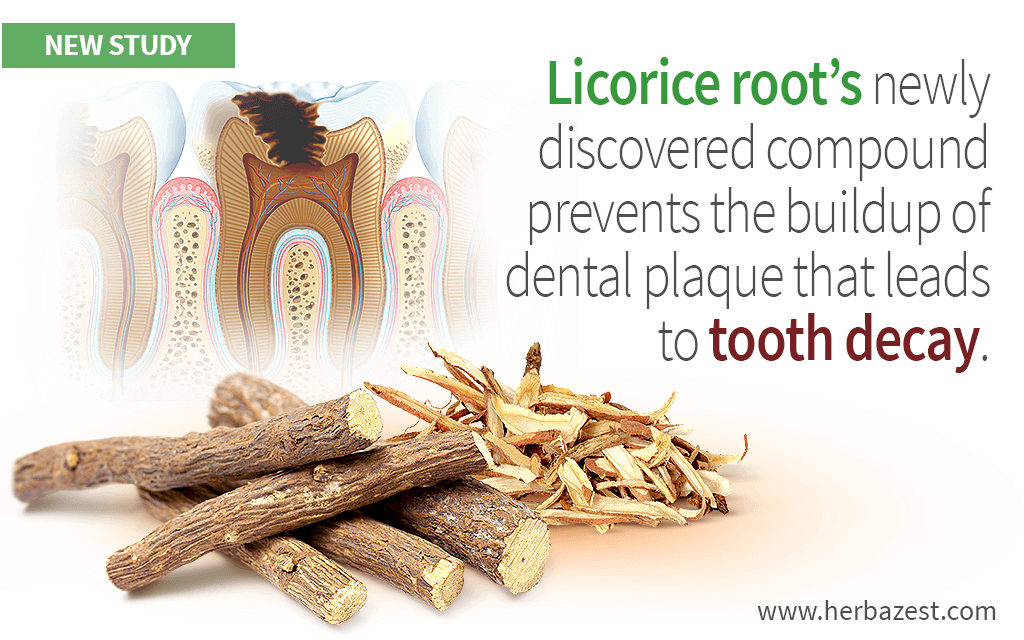As many a dentist has harped, tooth decay can occur when plaque is allowed to build up on the teeth. Recently, however, the University of Edinburgh has published a study on a certain plant compound called trans-chalcone, which is related to those found in licorice root, and may prevent the formation of plaque. Plaque is formed when bacteria - in this case, Streptococcus mutans - attach to the teeth and surround themselves with protective biofilms that make them difficult to remove.
The Study
In order to understand how trans-chalcone functioned in blocking the action of the bacteria, it was first necessary to understand the structure of an instrumental enzyme found within this strain of strep. This enzyme, sortase A, is the culprit behind the bacteria's ability to construct biofilms, the protective layer that leads to plaque. The research team was able to work out the 3D structure of sortase A, and thus understand the mechanism behind its interaction with trans-chalcone.
The Results
In the lab, the researchers observed that trans-chalcone blocked the enzyme sortase A, which in turn prevented the Streptococcus mutans colony from forming its protective biofilm. In other words, trans-chalcone inhibited the enzyme that allows bacteria to flourish in oral cavities, and which leads to the buildup of plaque.
What Does This Mean?
This is the first study that demonstrates trans-chalcone's ability to prevent the biofilm buildup that can lead to tooth decay. Because of this exciting discovery, other studies are being conducted on similar natural compounds that may have the same protective effect, in order to be included in consumer products. Products with these antimicrobial compounds have the potential to help people improve their dental hygiene.
Sources
- Chemical Communications, Molecular Basis of Streptococcus mutans Sortase A Inhibition by the Flavonoid Natural Product trans-Chalcone, 2015




